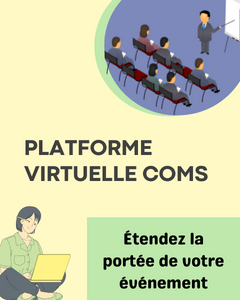Conférences > Mathématiques > Simulation > Canada
Sélecionner un pays
1
Model-Informed Vaccine Development and Quantitative Systems Pharmacology/Toxicology
15 mar 2026 - 20 mar 2026 • Banff, Alberta, Canada
Identifiant de l'évènement:
1668534
2
A Roadmap towards Developing Mechanobiochemical Models for Single and Collective Cell Migration through Complex Non-Isotropic Environments
10 mai 2026 - 15 mai 2026 • Banff, Alberta, Canada
Identifiant de l'évènement:
1668679
3
Modelling of Plant Microtubules
17 mai 2026 - 22 mai 2026 • Banff, Alberta, Canada
Identifiant de l'évènement:
1668590
4
Variational Problems in the Physical and Data Sciences: Analysis, Modeling, and Simulation
05 jul 2026 - 10 jul 2026 • Banff, Alberta, Canada
Identifiant de l'évènement:
1668680
5
Nonlocal Aggregation Models in the Life Sciences
23 aou 2026 - 28 aou 2026 • Banff, Alberta, Canada
Identifiant de l'évènement:
1668761
6
The Fluid Mechanics of Volcanic Hazards
25 oct 2026 - 30 oct 2026 • Banff, Alberta, Canada
Identifiant de l'évènement:
1668872
Conference-Service.com met à la disposition de ses visiteurs des listes de conférences et réunions dans le domaine scientifique. Ces listes sont publiées pour le bénéfice des personnes qui cherchent une conférence, mais aussi, bien sûr, pour celui des organisateurs. Noter que, malgré tout le soin que nous apportons à la vérification des données entrées dans nos listes, nous ne pouvons accepter de responsabilité en ce qui concerne leur exactitude ou étendue. Pensez donc à vérifier les informations présentées avec les organisateurs de la conférence ou de la réunion avant de vous engager à y participer!
Dernière mise à jour: 10 juillet 2025




